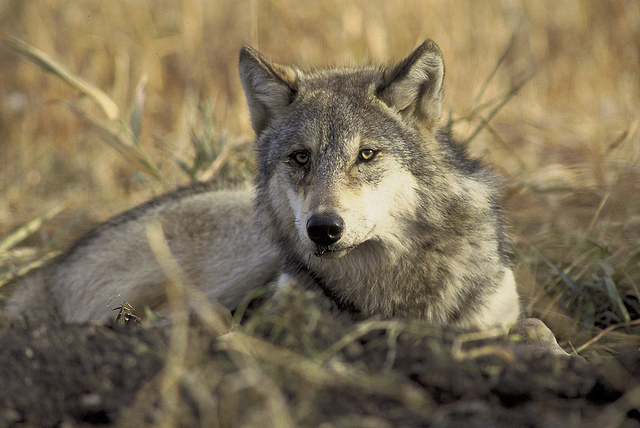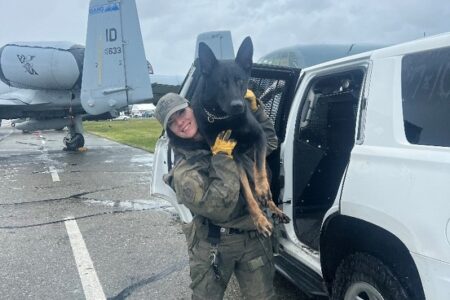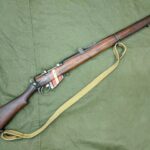Valhalla Wilderness Watch says wolf cull is not the solution, and 173,000 people around the world agree
A coalition of 60 environmental groups from across the province including the local Valhalla Wilderness Watch has sent the provincial government an open letter signed by 173,000 people from around the world, which calls for an end to the wolf cull.
Those groups behind the petition argue that caribou are threatened by human encroachment, not by wolves. They say limits to mining, snowmobiling and backcountry skiing would be a better way to allow herds to increase.
“Decades of habitat destruction and human encroachment have left BC’s mountain caribou on the edge of survival,” reads the petition hosted by Pacific Wild. “Instead of protecting critical food and habitat for caribou, such as the lichen rich interior forests, the BC government has now placed the blame on wolves. Over 180 wolves are now being targeted for aerial killing in the next two months. These highly social and intelligent animals, icons of our natural heritage, should not be killed because of government negligence. Killing all the wolves in BC won’t bring the caribou back in the absence of habitat protection.”
The Ministry of Forests, Lands and Natural Resource Operations began a cull that will kill up to 184 wolves in the province in mid-January of 2015. The ministry says it’s an immediate action needed to protect the South Selkirk and South Peace mountain caribou herds, which are seeing declining numbers.
Locally, the South Selkirk herd has dwindled to just a few members, placing it in serious danger of extinction.
According to the province, the caribou population in the South Selkirk herd has declined from 46 animals in 2009 to 18 as of March, 2014, and “(e)vidence points to wolves being the leading cause of mortality.”
VWW says cull is a “huge cover up”
The Valhalla Wilderness Watch says it’s going to take a lot more than killing wolves to help recover the mountain caribou in the province.
“It amounts to a huge cover up,” said VWW director, Craig Pettit. “We’re not saying that wolves don’t eat caribou, but they lived in balance with their prey species for thousands of years. We predict that if the government gets by with blaming wolves, every caribou herd in the province will be decimated the way the South Selkirk herd has been. Biologists that we’ve consulted have told us not to expect killing the wolves will save the caribou. Much more needs to be done to provide the animals with a secure and secluded habitat.”
According to Pettit, the main causes of decline in the South Selkirk herd include settlements; logging and mining; a major highway; and, more recently snowmobiles. They add that an increase in wildfires in recent years due to climate change is also a potential factor, as the caribou need old-growth forest for their habitat.
“Even while knowing that the loss of old-growth was a major factor, the government refused to stop the logging,” he says. “As late as 2001, I inspected a large, fresh clear cut of old-growth spruce forest, which is prime caribou winter range right in the herd’s core area next to Stagleap (Provincial) Park. The government boasts about how much habitat it has protected for this herd, but it doesn’t tell you that much of it is in patches between the clear cuts – conditions the caribou cannot tolerate.”
He adds that the South Selkirk herd crashed to just 25-30 animals as far back as the early 1970s when wolves were “virtually extirpated” from the area. The population has gone up and down since then, but wolves were never mentioned as a cause by any government at any point.
Government biologists said the main predators were cougars. And as late as 2008, the province’s Mountain Caribou Recovery Plan mentioned only “cougar management” as predator control in the area.
The VWW notes that in 2009, a calf and pregnant female were killed on the Kootenay Pass section of Highway 3, where the speed limit was recently increased from 90 km/h to 100 km/h.
And while the government says a “significant” amount of the caribou’s core habitat has been closed to snowmobiles, Pettit asks why all of it isn’t closed.
“Anyone visiting the Kootenay Pass on Highway 3 this winter can see snowmobile trailers parked alongside caribou winter habitat … and logging roads hard packed by snowmobile tracks going off into the forest,” he says.
He adds that numerous studies have shown packed snowmobile tracks help bring wolves into caribou winter habitat.
Province points the finger at wolves
The province’s wolf cull began in mid-January, with the goal of taking out up to 24 wolves in the South Selkirk area before the snow melts – by shooting them from a helicopter. The remaining 120 to 160 wolves to be culled will come from the South Peace area where four caribou herds are declining in population.
The Ministry of Forests, Lands and Natural Resource Operations says wolves have killed two of the remaining caribou (or 11 percent of the herd) within the past 10 months.
“Hunting and trapping wolves have not effectively reduced populations and may even split up packs and increase predation rates on caribou,” the ministry said. “Habitat recovery continues to be an important part of caribou recover, but cannot address the critical needs of these herds in the short term.”
The ministry adds that the plans for both the South Selkirk and South Peace herds have been independently peer reviewed.
The Nelson Daily has not contacted the ministry for comment on the petition as of press time, but will follow up with comment if available.
Image via usfwsendsp, Flickr Creative Commons


























Comments